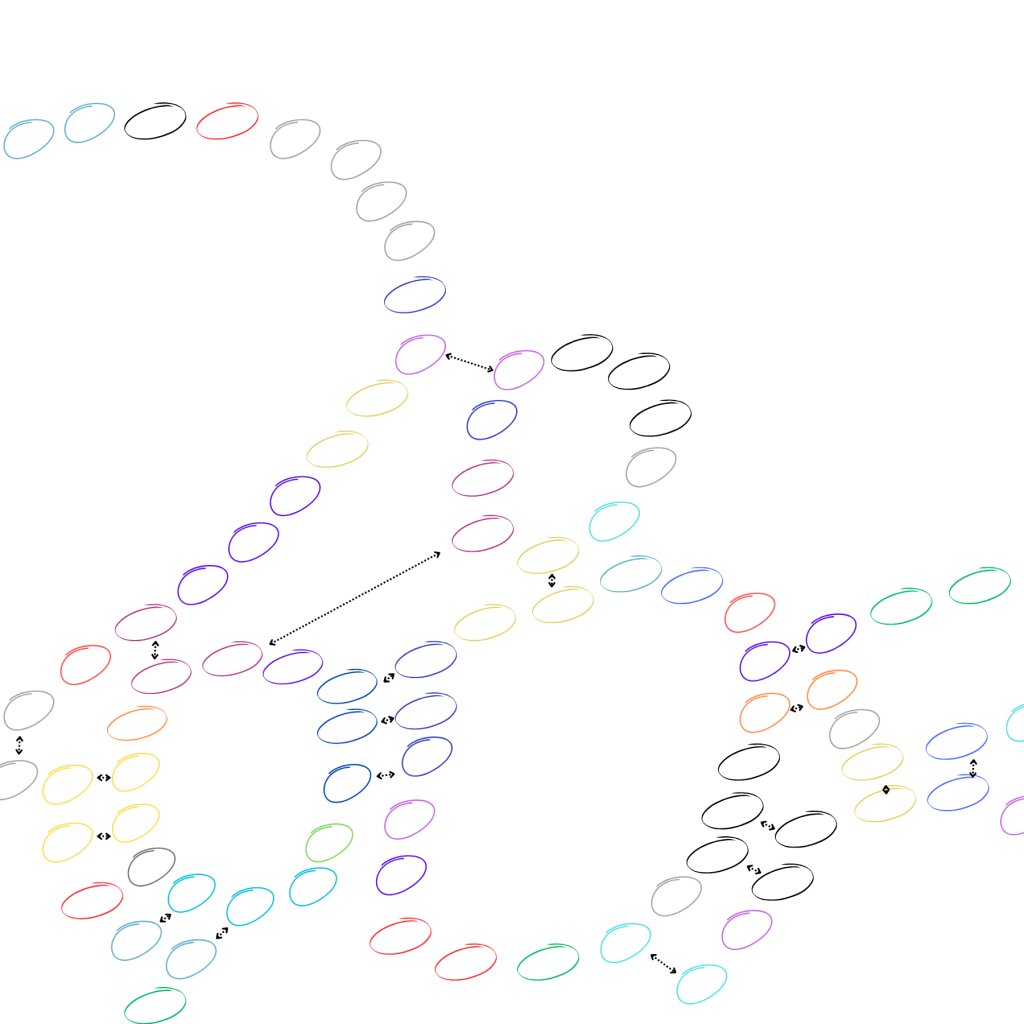
Why this, right now?
You’ve probably heard a lot of people say, “talk to your neighbors” and “lean into community” a lot since the November 2024 election, I know I’ve said it plenty. While I fully believe it to be true, it can also feel like an exhausting platitude when the sky appears to be literally falling. Building community isn’t something that we are taught, same as how we don’t learn how to do democracy, or how systems of power work.
What’s contained here isn’t a new idea, and has been implemented by a lot of different people in various situations where institutions and the nuclear family weren’t sufficient. I’ve been reflecting a lot on both “Wild Faith” by Talia Lavin and “The Serviceberry” by Robin Wall Kimmerer and trying to figure out what we can possibly do to counter the coalition power of the extreme right in the United States. The far right is a material and existential threat to us, and as we’ve seen since the inauguration, they are wasting no time in dismantling the social state as we know it. There is an expediency that we must embody in this moment, but that does not mean that we should panic or run. Running away is where we will get hurt. Margaret Killjoy provided some important reflection on this recently and the difference between fleeing in fear and strategic retreat. Don’t run.
The How
We have been trying out this configuration with local friends, family, and comrades over the past few months. We’re learning as we go, and it’s still very early in the process. However, we are building trust and systems of interdependence outside of the state or institutions. No one is coming to save us, but we can work together to build strong and resilient communities. This is also explicitly not intended to be a political organizing configuration, but rather one that fosters a network of kinship. Robin Wall Kimmerer says about kinship, “we become kin when we share gifts and can help each other out, just like members of our human family.”
For your context, it might make sense to coordinate political activities with your circle, but this not intended to take the place of strategic political organizing and action. Political organizing has and will likely continue to be part of our daily lives, but this specific configuration can exist primarily as a mutual aid or kinship network.
Configurations of 15-25 adults entering into intentional commitment with one another is one potential tool that we will need in order to face what is ahead. We would have needed to do this without another Trump presidency, climate crisis and shocks are already here, depending on each other will be necessary whether we are ready or we aren’t. These configurations can take a lot of forms, but I do think that in-person gatherings periodically (our groups plan to meet 2-3x annually in person) help to solidify the bonds. This is much easier if you’re in closer physical proximity with your Solidarity Circle; if you’re far apart, try for once a year and keep the conversation and support going through Signal. I also suggest that these are softly closed circles – there are times and places for open dinners and work parties – but there is something crucial in knowing who exactly has your back, and who’s back you have, in a catastrophe.
We have workshopped a number of potential benefits and focus areas of these circles, including:
- Flood support
- Shared childcare
- Food insecurity
- Long term disaster preparedness
- Group financial resistance to predatory lending
- Workdays/Barn raising
- Bulk purchasing
- Seed and plant swaps
- Community and emotional support
- Evacuation planning
- Long term food storage at scale
- Trainings in self defense
This is not meant to be an exhaustive list, but what we’ve currently explored while also under the tremendous stress of living in an escalated political environment.
One template we’ve been working with is available here
I am suggesting that you consider making similar formations combining your neighbors, your comrades, your blood and chosen families. This is not intended to encourage the hoarding of resources, but rather a way to push a departure from our small individualized family units as the most crucial building blocks of support. We all depend on each other in different ways, but in the secular society we don’t typically formalize it. We are up against a strong coalition of far right (primarily) Christian Nationalists who are subject to their singular religious beliefs and a fervently hierarchical structure. As anti-authoritarians we have the strength of independent thought and action, but also the weakness of dispersed action and strategy.

If you just form one of these that’s fine, however the impact is most likely to be seen if you are in 2-3. This style of daisy-chaining circles together works to strengthen our connections to each other and show that a world where we care for each other outside of traditional family structures and authoritarian religious institutions is possible. The overlap also offers an opportunity for circles that might be very cohesive in relationships but lacking in specific skills or resources to ask other circles for skillshares or trainings.
It’s important to look at skills, knowledge, and resources comprehensively. We also live in a society that values certain skills and knowledge over others, but we can counter and undermine that thinking in this work. We all have something to offer, and we all have something to learn.
The Why:
The Christian Nationalist Right believes that social services belong to “The Church” and that those deserving of grace are only those that bow to their angry god. Project 2025, which we are now witnessing the unfolding of on a federal policy level, is the pure embodiment of a weaponization of these beliefs.
We can be here for each other, and we can build strong kinship. That doesn’t mean we have to always agree, but we do need a certain window of tolerance of ideological difference. We are all annoying sometimes, and we’re all annoyed by others a lot. Each person’s window of tolerance will be different, and likely each circle will as well.
If you are interested in convening one of these circles, I’d suggest coming up with a list of individuals you’d like to invite. Before sending out the invitations take a look at who is on there: Who is represented? Who might be the most vulnerable? Who is the most insulated from potential political or environmental impacts? Is there a balance in that? Is this a group of people who don’t have standing intense conflicts with each other? Once you’ve answered those questions, start reaching out to folks and seeing if they’d be interested in getting together for a few hours and seeing how you all could mutually support one another, and if there are any agreements or commitments you’d like to make to one another. I will be adding more about strategies for conversation containers and possible decision making practices.
These need to be free and voluntary, it’s not going to be a fit for everyone, and folks need to feel that they can walk away. At the same time, I do think as leftists we might want to dig a little deeper on what our actual veto-worthy actions and beliefs are. Being in community is hard, and we don’t have the benefit/poison of being in authoritarian organizations that force us to see past harm and accept our fellow comrades and conspirators. This is a place where The Right has a distinct advantage on us, so the question becomes how do we form counter formations that don’t betray our values but still help us move forward together.
We are in an iterative space that is unfortunately also a constant and escalating crisis. We will have to pilot different potential solutions, and some will work in certain contexts and others will not. It may be too great an ask for us to have patience with each other, but in any moment we can, I think we should try.